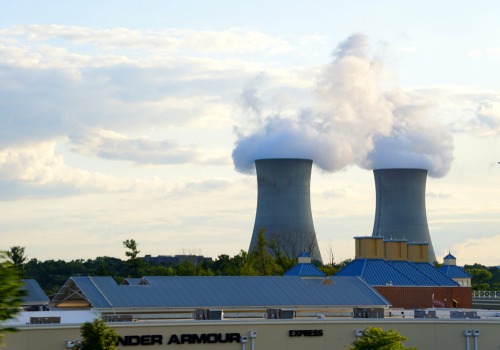
Energy industry leaders, union trade groups and elected representatives held a jobs rally on Wednesday in Pittsburgh to oppose Gov. Tom Wolf’s proposed plan to enter Pennsylvania into the Regional Greenhouse Gas Initiative (RGGI) and highlight the negative direct and indirect impacts such participation could have on the state.
“Entering the Regional Greenhouse Gas Initiative will have devasting, long-term economic impacts on Pennsylvania for many years to come,” state Rep. Jim Struzzi (R-62) said. “These factors are not being considered and the voice of the people is essentially being ignored by this administration. We are asking for this to be vetted properly through the General Assembly so that all the ramifications of RGGI are considered.”
In October 2019, Wolf directed the state Department of Environmental Protection (DEP) to join RGGI – a collaboration of 11 Northeast and Mid-Atlantic states – which sets a cap on total carbon dioxide (CO2) emissions from electric power generators in each member state. Power plants must purchase a credit or “allowance” for each ton of CO2 they emit in order to comply with RGGI standards.
“Energy and the environment can and must co-exist,” said Jimmy Brock, president and CEO of CONSOL Energy. “We need to be investing and innovating, while finding ways to maintain our coal mines and power plants operations through technology to reduce or eliminate CO2 emissions and also finding alternative uses of coal.”
Event participants noted that the tax could lead to the closure of several fossil fueled power plants in the state, eliminating thousands of energy-related jobs, particularly in western Pennsylvania, and increasing electric rates for low- and fixed-income residential customers. According to the 2020 PJM Carbon Pricing Study, the average residential electricity price would increase more than 18 percent by 2030 under RGGI participation.
“When Governor Wolf took office, he pledged a government that works, jobs that pay and schools that teach,” state Sen. Joe Pittman (R-41) said. “His government is working – working to eliminate thousands of jobs that pay. Meanwhile, schools in the region I represent will be deprived of their ability to teach as his carbon tax destroys their local tax base.”
Power PA Jobs Alliance, a sponsor of Wednesday’s event, used the platform to highlight the results of two recent polls designed to understand the general attitude towards RGGI involvement.
The Spring 2021 Keystone Business Climate Survey, conducted by the Lincoln Institute of Public Opinion and Research, found that 73 percent of Pennsylvania business owners oppose Wolf’s “unilateral action on energy policies that directly impact electric rates and jobs” without approval from the General Assembly. Additionally, 60 percent of likely Pennsylvania voters felt the same, according to the Pennsylvania Statewide Omnibus Telephone Poll, conducted by Susquehanna Polling & Research.
The polls also found that 67 percent of state business owners (Lincoln) and 57 percent of likely voters (Susquehanna) oppose an added fee on carbon dioxide emissions from Pennsylvania power plants.
According to the Power PA Jobs Alliance, a state DEP model showed that joining RGGI did not decrease carbon dioxide emissions within the state’s transmission. Instead, it showed a shift in generation, and jobs, to neighboring states that do not tax.
“RGGI will create an uneven playing field moving the goal post out of Pennsylvania and into West Virginia and Ohio,” Shawn Steffee, business agent for Boilermakers Local 154, said.
And while updated DEP modeling does show a 0.89 percent reduction in carbon dioxide between now and 2030 in PJM, and a 0.168 percent reduction in emissions in the Eastern Interconnection in the same time, the modeling does not reveal efforts to address power generation leakage, Power PA noted.
“Joining RGGI may be worse for the environment,” Power PA said. “Because of the generation leaking from Pennsylvania to Ohio and West Virginia, increases in actual pollutants like NOx and SO2 will occur given those states do not have the same stringent controls on their power plants and the fact that Pennsylvania is immediately downwind.”